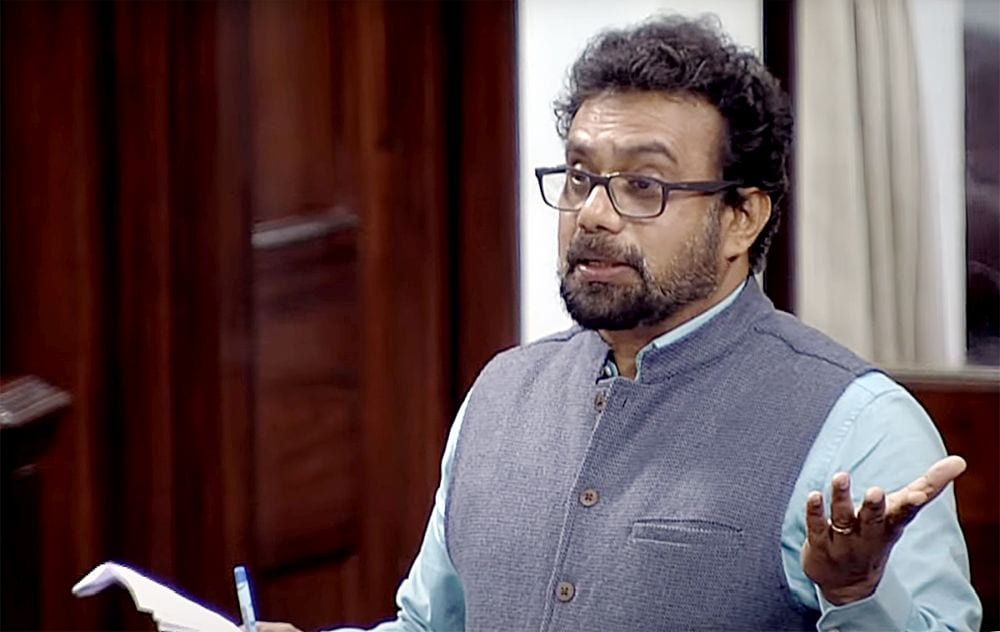Anjali* was 15 and was raised by her widowed mother when she met 19-year-old Shahid. She was drawn to his soft-spoken nature and the fact that he had a steady job at a fast food outlet.
She knew her mother would never accept her relationship with a Muslim man. So when she decided to marry him, it was in a civil court but with tampered documents that put her age at 18. Soon after, she converted to Islam.
Three months after her marriage, Shahid was arrested for kidnapping and raping a minor under the Pocso (Protection of Children from Child Sexual Abuse) law on a complaint filed by Anjali’s mother. Anjali, now Asifa, was packed off to a shelter home where a bone ossification test eventually put her age to be around 18 and she was allowed to return to her husband. She remains estranged from her mother.

The need for Pocso
Nobody disputes the need for a law that protects children from sexual abuse in a country where it is rampant: 53% of them had faced some form of sexual abuse, according to a 2007 government survey.
On Children’s Day, November 14, 2012, the Pocso Act was brought in to deal specifically with this abuse. It recognised various offences against children from sexual assault to pornography. It made the failure to report such cases a punishable offence. It set out procedures on how to record a child’s statement and how special courts are to conduct trials.

Source: Unsplash line
And, for the first time since 1940, it increased the age of consent for girls from 16 to 18.
The punishments under this law are tough. In 2019, the death sentence was brought in for aggravated sexual assault. Jail time was increased from seven to 10 years; 20 if the girl is under 16.
Under this law, sex with a girl below the age of 18, even if she consents to it, even if she’s your wife, amounts to statutory rape.
In October this year, the Allahabad high court rejected bail to the husband of a 17-year-old girl in jail since June 2021. “Her consent is of no significance,” Justice Sudharani Thakur said.
The original draft of the act recognised this conundrum and suggested some wiggle room for consensual sex involving adolescents over 16. But when the law was finally passed, all sexual activity with a girl below the age of 18 was termed illegal.
The numbers
One in five Pocso cases in Karnataka (21.8%), Delhi (21.5%) and Andhra Pradesh (21.2%), were in fact ‘romantic’ cases where the girl said she was in a consensual relationship, finds analysis by the Centre for Child and the Law, National Law School of India. In some cases, the girl had even got married but that didn’t stop her disapproving parents from filing police complaints against their husbands.
An analysis of 7,063 Pocso judgements in Assam, Maharashtra and West Bengal by the Enfold Proactive Health Trust with UNICEF India finds that one in four of these cases, or 1,715, are romantic cases. It was parents and relatives who had lodged complaints in 80.2% of these cases.
The time taken from the filing of an FIR to disposal of these cases can vary from a year to over three years even though 93.8% of such cases ended in acquittal, finds the report. Until then, relationships are disrupted, men and boys can be jailed and girls packed off to shelter homes.
In November, the Karnataka high court asked the Law Commission to rethink the age of consent in order to “take into consideration the ground realities”. The court was hearing a case where in 2017, a 17-year-old girl had eloped with her boyfriend. Her parents then filed a police complaint but a lower court acquitted the boy.
The state then filed an appeal against that acquittal. By the time the high court dismissed all charges, the girl and boy, now woman and man, had married and had two children.
Judicial concern
A rash of such cases has led to some introspection and questioning by the judiciary.
Last week, Chief Justice Dhananjaya Chandrachud weighed in by asking the legislature to address concerns about the age of consent.
On Thursday, former Supreme Court judge Indira Banerjee said some Pocso provisions such as that of a consensual sexual relationship between minors needed rethinking.
This year alone, Pocso judgements have been making news with an increasing number of high courts around the country overturning convictions by lower courts.
In November, the Meghalaya high court said “acts of mutual love and affection between a young couple will not amount to sexual assault”.
Also in November, the Karnataka high court quashed a Pocso case against a man for impregnating his 17-year-old wife. The case was reported by the hospital where the woman had gone for a check-up.
But, just two days earlier, another judge from the same high court ruled that the marriage of a Muslim minor girl, even if allowed by her religion’s personal law, is invalid as it violates Pocso provisions. It said this while denying bail to her 19-year-old husband.
In one case, the mother who had filed a case against the husband of her minor daughter who had run away to marry, told the Madras high court in 2021 that she wished to let “bygones be bygones”. She had, she told the court reconciled herself to the marriage and wanted the case dropped.
Fortunately, for the family, the judge agreed.
*Anjali’s story is cited in Why Girls Run Away to Marry, a report by Partners in Law and Development.

DISCOVER

So, it turns out that lady snakes do have a clitoris–not one but two of them (if you want to get science-y, it’s called a hemiclitoris).
While snake penises have been studied for decades, nobody was quite sure about female snakes until scientists in Australia took the simple step of looking. “You peel back the skin and it’s right there in front of you,” said Megan Folwell of the University of Adelaide who confirmed the discovery on Wednesday.
The discovery could lead to some interesting research on snake sex and the role of pleasure rather than just procreation.
Everything you wanted to know about snake clitorises, and more, in The Atlantic here.
IN NUMBERS
As much as 30% of the Rs 6,000 crore Nirbhaya Fund remains unused since it was set up in 2013 to enhance safety and security for women following the gang-rape of a student. The fund has been used to establish one-stop crisis centres, fast-track court and to procure forensic kits for sexual assault cases.
More controversially, it was reported that it was used to buy vehicles to provide security cover to MLAs and MPs in Maharashtra.
We hear you

(Source: ANI)
“There is a direct link between school dropout rates and ‘period poverty’…Women literally pay a higher price simply for existing in the world as non-men.”
CPI(M)’s John Britta told the Rajya Sabha that the Centre must ensure that schoolgirls are provided free sanitary products.
Watch

(Source: Harvard University)
Harvard University named Claudine Gay as its first African American, and second woman, president in its 386-year history. The 52-year-old daughter of Haitian immigrants, and a cousin of Bad Feminist author Roxane Gay, was previously a dean of the Faculty of Arts and Sciences.
Listen to her speak about her new role as a ‘moment of possibility’.
News you might have missed
Bilkis petition dismissed
The Supreme Court has dismissed a review petition filed by Bilkis Bano, a survivor of the 2002 Gujarat riots, who had challenged a May order of the apex court that allowed the Gujarat government to consider the remission plea of 11 men convicted of gang-raping her and others, leaving seven members of her family dead under an older 1992 policy which allowed for early release in rape and murder cases.
Its sale is banned. So how is there another acid attack?
Nine years after the Supreme Court order called for the strict regulation of the sale of acid, a 17-year-old school girl became the victim of the latest acid attack in New Delhi on Wednesday.
The class 12 student is being treated for burn injuries at Safdarjung hospital. Three men have been arrested. One of them, Sachin Arora, is said to have bought the acid on an e-commerce website.
But acid, commonly used to clean toilets, is freely available in the open market. India has one of the world’s highest incidence of acid attacks with 1,079 acid attacks in the past five years, according to the National Crime Records Bureau, and 176 in 2021 alone.
Victims are usually girls and women attacked by male stalkers whose advances they have rejected. The intention is not to kill the victim but to cause long-lasting physical damage and emotional trauma.
Love is love: Supreme Court will decide

Various petitions filed at different high courts for the legal recognition of same-sex marriages may now be heard together by the Supreme Court. A bench headed by chief justice Dhananjaya Chandrachud on Wednesday issued notices to the Centre and the Delhi government.
The wheels of justice…
Nearly a year after the arrest of Aumkareshwar Thakur on charges of creating ‘sulli deals’, a sexist and offensive app on GitHub where photos of hundreds of Muslim women were posted without their consent with captions like “Deal of the day”, Delhi Lieutenant Governor V K Saxena finally granted permission to prosecute Thakur who was arrested in January has been out on bail since March.
And the good news…
An indigenously developed HPV (human papillomavirus) vaccine to prevent cervical cancer that is considerably cheaper at between Rs 200 and Rs 400 a dose, compared to the Rs 2,500-Rs 3,300 per shot currently in the market, will be available to girls aged between 9 and 14 by May next year. Called Cervavac, the vaccine was developed by the Serum Institute of India and offers protection against four strains of HPV.
Read Parmita Uniyal on why this is significant.
AROUND THE WORLD
In the US, President Joe Biden signed into law new federal protections to same-sex and inter-racial marriages, reports CNN. The move was necessitated after the Supreme Court revoked Roe v Wade and in effect overturned abortion rights earlier this year.
In Barbados, another formerly British colony that inherited many of its laws, the infamous section 377 that criminalised ‘sex against the order of nature’, has been repealed, notes Human Rights Watch.
In Greenland, BBC reports on a ghastly Danish campaign in the 60s and 70s where thousands of women and girls, some as young as 12, had contraceptive devices implanted without their consent to control the growing Inuit population. The Danish government has promised an investigation.
| Were you forwarded this email? Did you stumble upon it online? Sign up here. |
| That’s it for this week. Do you have a tip or information on gender-related developments that you’d like to share? Write to me at: namita.bhandare@gmail.com. |